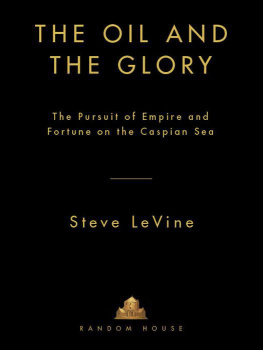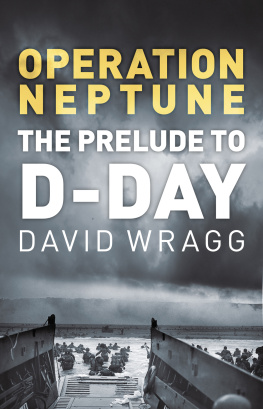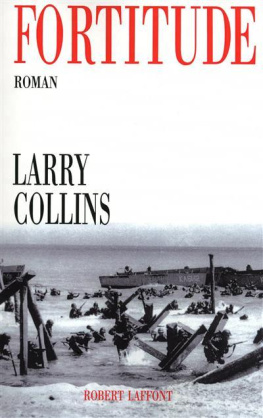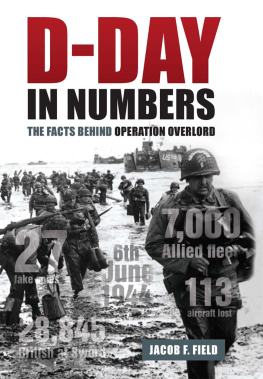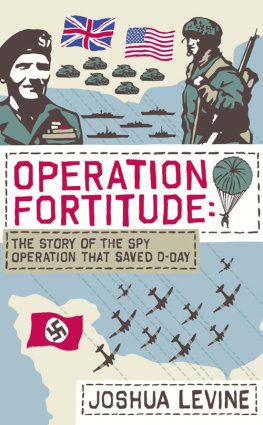Levine - Operation Fortitude
Here you can read online Levine - Operation Fortitude full text of the book (entire story) in english for free. Download pdf and epub, get meaning, cover and reviews about this ebook. year: 2011, publisher: HarperCollins Publishers, genre: Detective and thriller. Description of the work, (preface) as well as reviews are available. Best literature library LitArk.com created for fans of good reading and offers a wide selection of genres:
Romance novel
Science fiction
Adventure
Detective
Science
History
Home and family
Prose
Art
Politics
Computer
Non-fiction
Religion
Business
Children
Humor
Choose a favorite category and find really read worthwhile books. Enjoy immersion in the world of imagination, feel the emotions of the characters or learn something new for yourself, make an fascinating discovery.
- Book:Operation Fortitude
- Author:
- Publisher:HarperCollins Publishers
- Genre:
- Year:2011
- Rating:5 / 5
- Favourites:Add to favourites
- Your mark:
- 100
- 1
- 2
- 3
- 4
- 5
Operation Fortitude: summary, description and annotation
We offer to read an annotation, description, summary or preface (depends on what the author of the book "Operation Fortitude" wrote himself). If you haven't found the necessary information about the book — write in the comments, we will try to find it.
Operation Fortitude — read online for free the complete book (whole text) full work
Below is the text of the book, divided by pages. System saving the place of the last page read, allows you to conveniently read the book "Operation Fortitude" online for free, without having to search again every time where you left off. Put a bookmark, and you can go to the page where you finished reading at any time.
Font size:
Interval:
Bookmark:
OPERATION FORTITUDE
THE STORY OF THE SPY
OPERATION THAT SAVED D-DAY
JOSHUA LEVINE

Contents
Chapter One
Atlantic Wall
As the rain poured down in the English Channel on the night of 19 May 1944, a British motor torpedo boat headed for the French coast. On board were two officers a Commando and a Royal Engineer. Their mission was to investigate a new type of German mine and to take infrared photographs of the obstacles dug into the beaches to resist the coming Allied invasion. The Germans, aware that the Allies were planning to attack Fortress Europe, had fortified the entire length of the Atlantic and Channel coasts. For the Commando officer, Lieutenant George Lane, this would be the third night in a row that he was being delivered to the same spot to carry out the same reconnaissance.
Lane was a Hungarian who had been studying at London University when war broke out. After a spell in the Pioneer Corps he was invited to join the Special Operations Executive (SOE), before transferring to the Commandos, where he helped to form a special unit of refugees from occupied Europe. These were men who had already suffered at the hands of the Nazis and they felt a hatred for the enemy far greater than that felt by the average British soldier. They had assumed British identities on joining the unit, but their accents betrayed their origins and as Commandos and nationals of occupied states they could expect to be handed over to the Gestapo if captured. For Lane whose real name was Dyuri Lnyi the current mission was merely the latest in a string of secret and highly dangerous raids on the enemy coast.
This particular raid came about as a result of a recent RAF strafing attack on the French coast. A Spitfire had fired a rocket which fell short of its target but set off a series of underwater explosions. The aircraft had been mounted with a camera and, to the analysts studying the film, the sequence of events suggested the existence of a previously unknown type of German mine. Lane was therefore to comb the beach for unknown varieties of pressure mine, release mine or magnetic mine. Over two tense and tiring nights he scrutinized numerous mines and decided that they were nothing more than ordinary landmines fixed to stakes driven into the sand. They were, he noted, underwater at high tide, and so designed to destroy landing craft on contact. But Lanes report had been doubted and so on the third night Lieutenant Roy Woodridge, a mine expert from the Royal Engineers, was sent beachcombing with him.
The two men were transferred from their motor torpedo boat into a smaller dory. They landed on the beach and began studying the mines as the dorys crew waited. Woodridge quickly confirmed Lanes previous findings. The landmines, he decided, hadnt been properly waterproofed, their firing mechanisms had been corroded, and the pressure of the rock-ets explosion had set them off in unison. The mystery solved, Lane ordered the dorys crew back to the motor torpedo boat and told them to return in an hour, once he and Woodridge had taken their infrared photographs.
Minutes later the two men were surprised by the sound of gunfire. They lay down in the sand dunes as a pair of German patrols opened fire on each other, each believing the other to be a raiding party. When the firing stopped, they picked themselves up and hurried back to the water. The dorys crew had left a small rubber dinghy behind. Lane and Woodridge knew that if the Germans found them on the beach they would be shot as saboteurs, so they climbed into the dinghy and paddled furiously. By the time it was light they were a mile out to sea.
As they paddled they became aware of a motorboat heading towards them from the shore. After a quick discussion they decided to feign helplessness in the hope that they could overpower the boats crew when it drew alongside them. But as the boat came into focus out of the gloom they could see that it was full of soldiers pointing Mauser rifles. There seemed little point in resistance. With what Lane later described as a theatrical gesture, he and Woodridge raised their arms and surrendered. They had already thrown away their cameras, mine detectors and any other evidence that they had been ashore, and would now have to convince their captors that they were neither saboteurs nor Commandos.
On land they were separated and interrogated. In a dark cellar Lane was repeatedly told that he would be executed as a saboteur, but he stuck to the story that he and Woodridge were the remnants of a naval battle and had not been anywhere near the beach. Woodridge, fortunately, was telling the same story in a nearby cellar. The next morning they were blindfolded, their hands were tied, and they were led outside to a car. Lane was placed in the front seat, but his blindfold was slightly askew; by tilting back his head he could catch glimpses through the window and he tried to memorize the signposts that flashed past him. He had no idea where they were going. Presumably to their deaths. The car stopped soon after passing a sign which read La Roche-Guyon. Neither man was aware of the fact, but they were arriving at a twelfth-century chteau to meet a man who had expressed a desire to meet them and who had the power to save their lives. He was the man chosen by Hitler to defend western Europe from Allied invasion, as well as the most famous German soldier of them all: Field Marshal Erwin Rommel.
La Roche-Guyon is a pretty village nestled in a loop on the River Seine between Mantes and Vernon. It is not far from Giverny, where Monet obsessively painted his waterlilies. Lane remembers, when his blindfold was removed, being faced by a striking chteau set against grass-rimmed cliffs and, above it, a half-ruined Norman tower. The ancestral home of the Rochefoucauld family, the chteau now served as the headquarters of Rommels Army Group B. Rommel had chosen the chteau for three reasons. First, for its security; centuries-old tunnels dug into the soft limestone cliffs were enlarged to provide secure living quarters for officers and men. Secondly, for its proximity to Paris. Thirdly, and most crucially, for its central position between the Pas de Calais and Normandy, the two most likely sites of the forthcoming Allied invasion. Rommels Army Group B was made up of the Seventh Army, charged with defending the coast from Brittany up to the River Orne, and the Fifteenth Army, responsible for the sector from the Orne further up to Belgium. For all their preoccupation with the approaching invasion, and despite the fact that the Allies were feverishly preparing for it less than 100 miles away, the Germans did not actually know where or when it was coming.
Having arrived at the chteau, Lane was marched through the front door and placed alone in a brightly gilded room. Intrigued by events, and relieved to be in civilized surroundings, he became curious. He spotted a door slightly ajar and opened it. He was instantly confronted by the most ferocious dog hed ever seen, which growled unpleasantly as it was pulled back by a guard. Curiosity quelled, he sat down. He was joined by an elegant German officer who brought him a sandwich and a cup of coffee. This was Lieutenant Colonel Hans-Georg von Tempelhoff, Rommels chief operations officer, and one of his most trusted companions. Von Tempelhoff addressed Lane in fluent English, a language native to neither of them. This was a concern to Lane, who spoke English with a noticeable Hungarian accent, which, with a few tweaks, he attempted to pass off as a Welsh lilt. He had done much of his Commando training in Wales, but was his accent plausible enough to fool the German, a cultured officer with an English wife?
Ive got something important to tell you, said von Tempel-hoff. You are going to meet a very important person, and I must have your assurance that you will behave with the utmost dignity. I happen to be an officer and a gentleman, replied Lane in his best Welsh-Hungarian, and I cant behave in any other way. Who am I going to meet? Youre going to meet His Excellency Field Marshal Rommel! Lane was delighted; Rommel had earned a great deal of respect among British soldiers. Von Tempelhoff wondered whether there was enough time for Lane to tidy himself up, but decided that there wasnt. But would you like to clean your nails? he asked, offering Lane a nail file. So, his accent having passed muster, Lane made his nails presentable for the field marshal.
Font size:
Interval:
Bookmark:
Similar books «Operation Fortitude»
Look at similar books to Operation Fortitude. We have selected literature similar in name and meaning in the hope of providing readers with more options to find new, interesting, not yet read works.
Discussion, reviews of the book Operation Fortitude and just readers' own opinions. Leave your comments, write what you think about the work, its meaning or the main characters. Specify what exactly you liked and what you didn't like, and why you think so.




